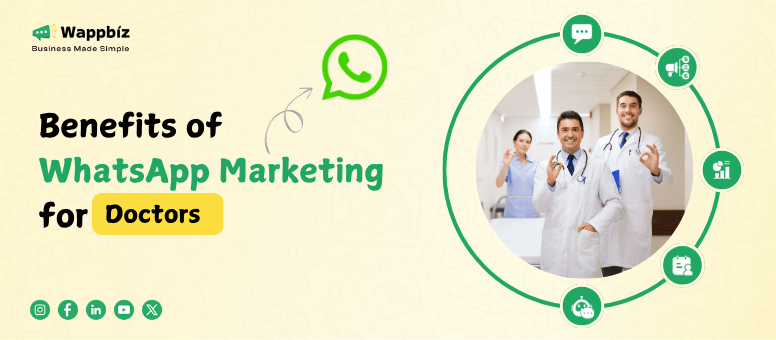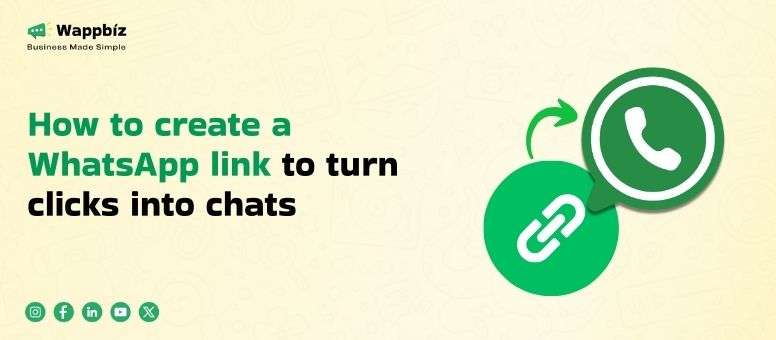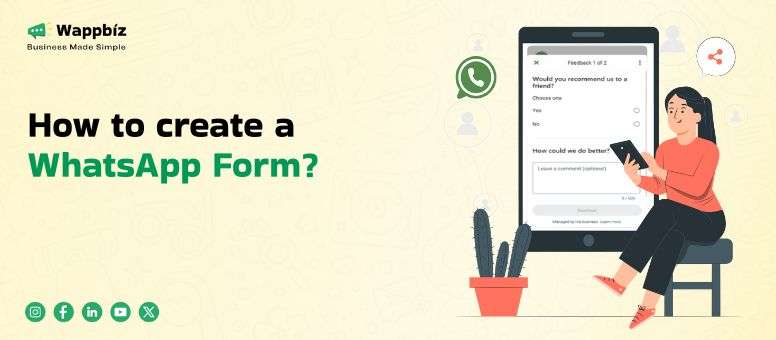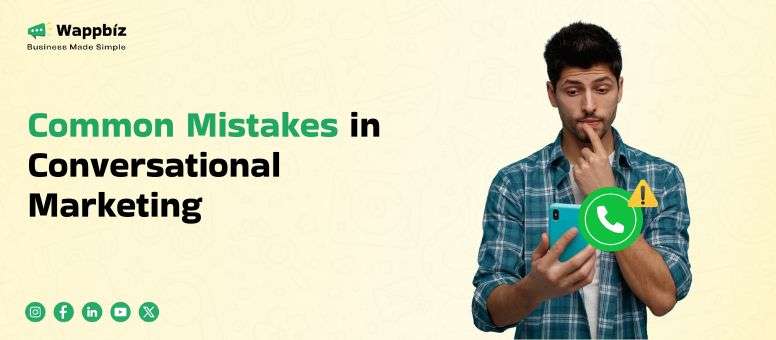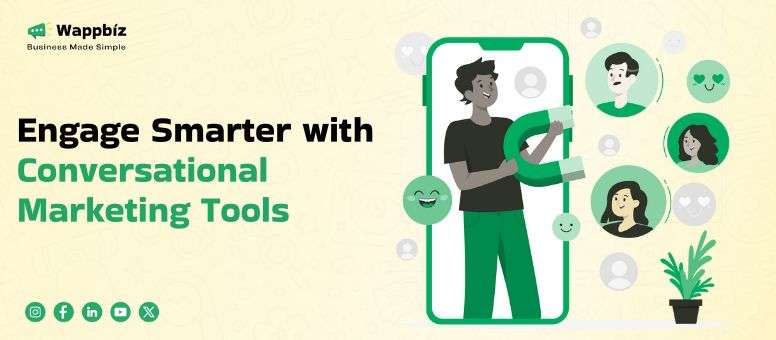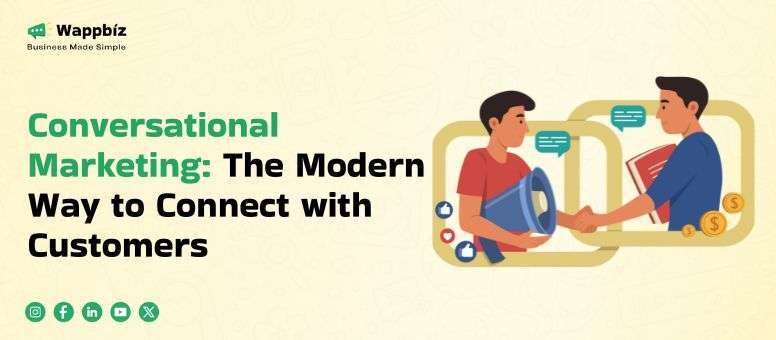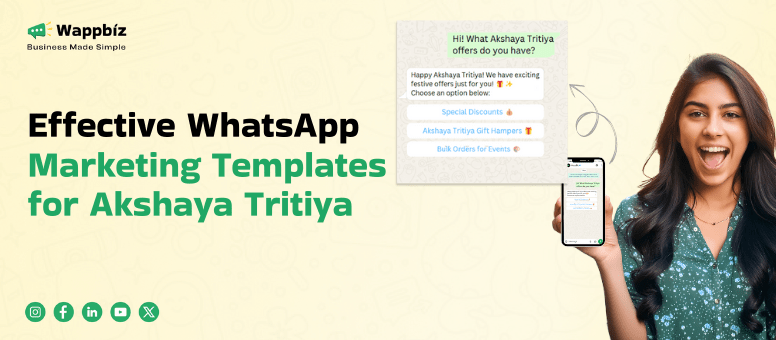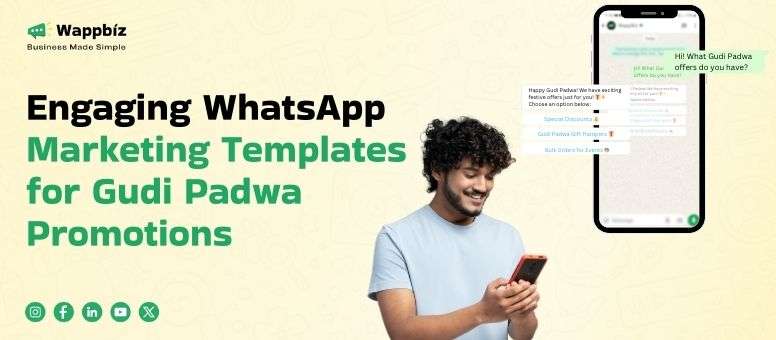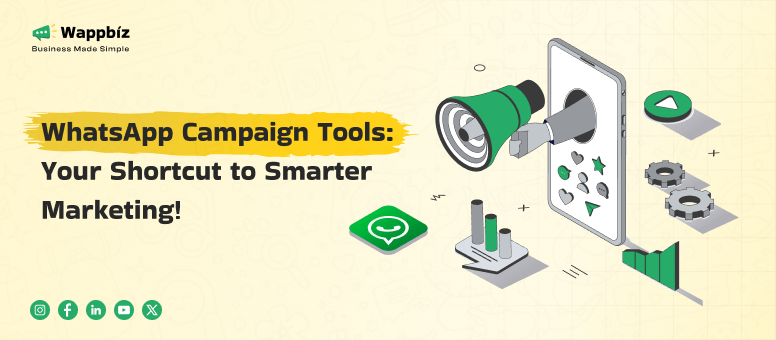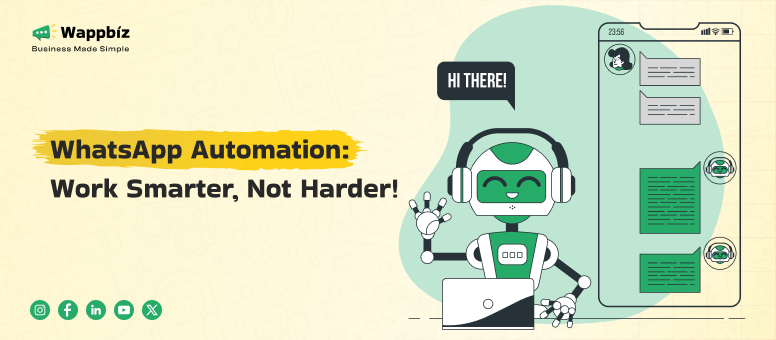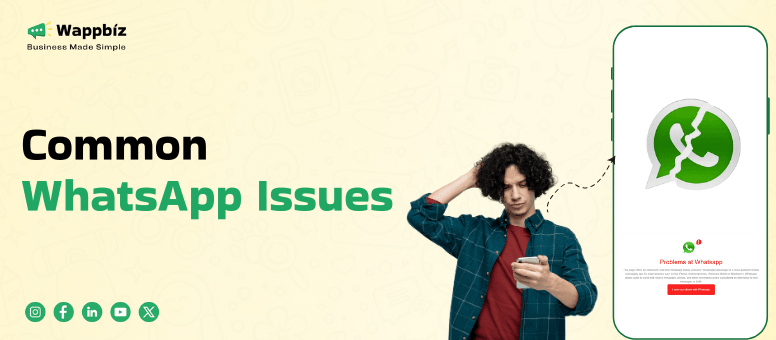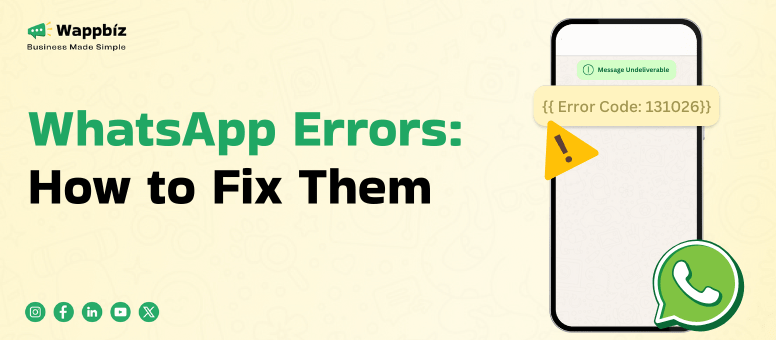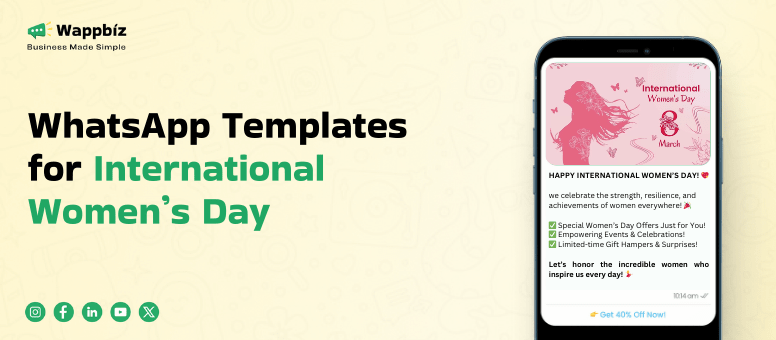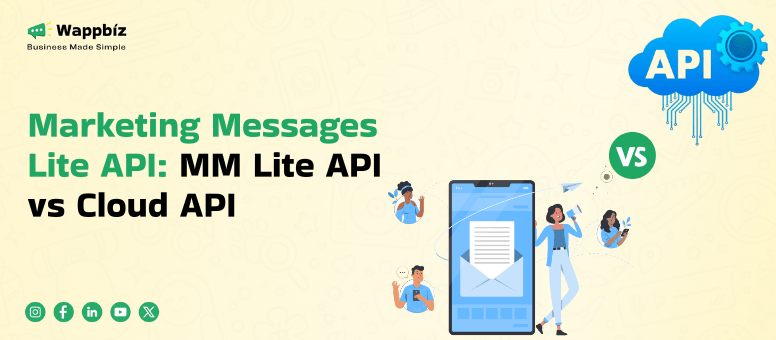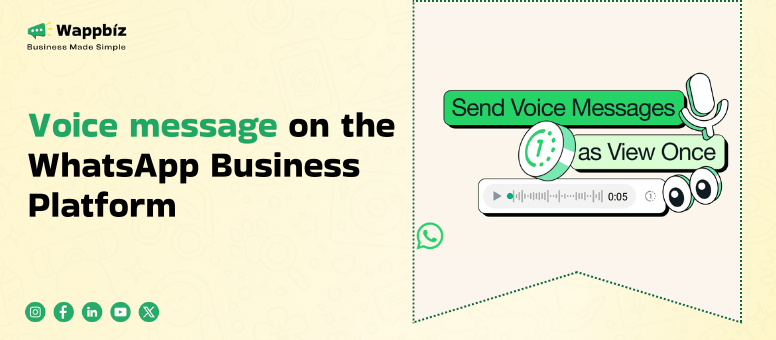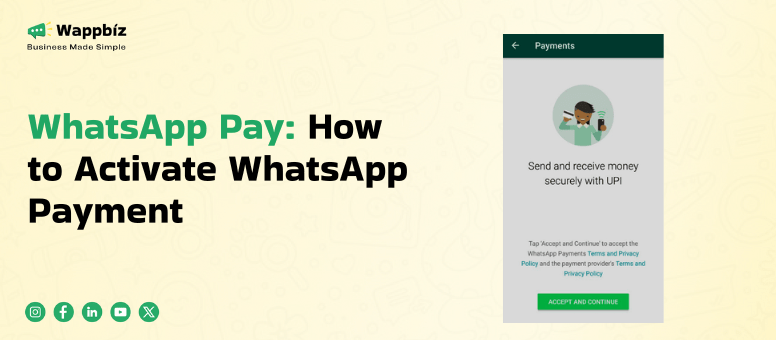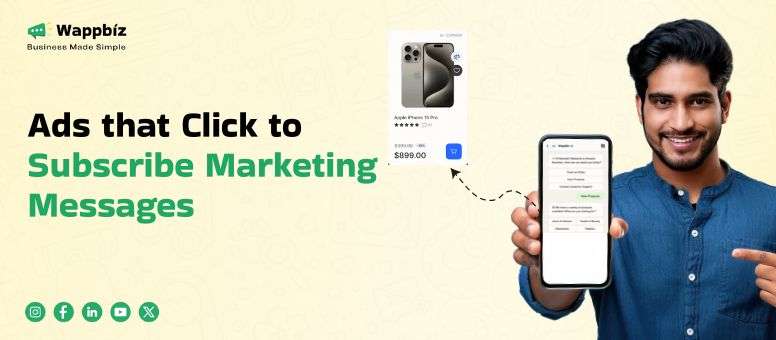Imagine a scenario where you wake up with symptoms and are uncertain about whether to visit the clinic. That can be quite distressing. In such a situation, having quick access to a doctor’s advice is crucial and can provide patients with the necessary comfort and guidance. Today’s patients, most of them, now prefer messaging their doctors, valuing real-time, personalized responses.
Doctors can provide access to WhatsApp marketing through the WhatsApp API and the WhatsApp Business API. These tools facilitate healthcare communication right from appointment bookings to follow-up check-ins. WhatsApp marketing is more than just a convenience; it has become a vital link between the quality of care patients desire and the healthcare services they seek. So let’s jump into how WhatsApp can help doctors transform patient interactions and build trust.
Why Doctors Need Effective Marketing Solutions?
The healthcare industry now faces a challenge traditionally faced by other industries: navigating the digital age and offering a responsive channel for patient communication, given the rapidly changing consumer communication expectations. Patients today have become familiar with instant access and anticipate prompt responses concerning their health. Unfortunately, traditional channels like phone calls or emails can often be too slow or inconvenient for busy patients who need timely assistance.
WhatsApp marketing gives an effective and patient-friendly health solution. Doctors can communicate directly with patients using the WhatsApp API and WhatsApp Business API for reminder alerts, lab result notifications, and follow-ups that do not lag. To help doctors spend more time caring for their patients, automated WhatsApp chatbots are available to resolve routine queries. There are 20 benefits designed to make healthcare communication quicker, easier, and more rewarding for patients as well.

Top 20 Benefits of WhatsApp Marketing for Doctors
Appointment Reminders
It simplifies the process of reminding patients about their appointments, ensuring they don’t miss their consultations.
For example,
An alert to the patient could be, “Reminder: Your appointment with Dr. Smith is tomorrow at 3 PM.” These reminders reduce no-shows, which can disrupt the doctor’s workflow and push back a patient’s care. Reminders are also convenient for patients and can help them keep their things in order. Constant reminders allow doctors to demonstrate their concern for their patients’ health and help them remember important appointments.
The simplicity of WhatsApp reminders enables patients to understand their doctors’ care, fostering a sense of professionalism as they witness the time their doctors dedicate to their health management. In this way, you will smooth out the practice itself as well as remind patients why they should return to your office regarding follow-ups and subsequent appointments.
Lab results notifications
Doctors can use WhatsApp to send lab results quickly, so patients don’t have to worry about waiting times.
For example,
Your lab results are in, and they’re within normal ranges. Please reach out if you have questions.” Providing lab results directly through WhatsApp eliminates unnecessary delays, allowing patients to access important health information quickly. Patient involvement in communication fosters confidence as patients feel information-aware and important. Regular updates are essential for patient engagement.
Informing patients reduces healthcare friction and allows them to feel less stressed because they know that everything is under control. With timely lab results, doctors can create openness and trust in patients, so they feel that the doctor is sharing everything necessary for their health journey. When doctors and patients communicate at the right time, they establish a sense of transparency and care, which improves patient satisfaction and reduces further questions from patients.
Real-Time Health Updates
This is especially important for WhatsApp, as it allows doctors to provide real-time health updates to patients, particularly those with chronic illnesses.
For example,
A message might remind, “Remember to check your blood pressure today and log it for your next appointment.” Such reminders motivate patients to participate actively in managing their health. With real-time information, the healthcare provider can track their patients between visits and encourage positive behaviors that will ultimately enhance their patients’ care experience.
Patients value the assistance, as this alleviates some of the stress associated with navigating their condition alone. By staying connected, patients act as a safety net, enabling doctors to step in before situations escalate and ensuring they remain in a secure environment. Patients are aware that their doctor is concerned about their health beyond the clinic walls, and this constant involvement helps build trust.
Medication Reminders
The power of WhatsApp lies in encouraging the patient to follow their prescribed medication instructed by way of reminders.
For example,
It’s time to take your medication! Remember to take your medication with food.” Remembering to take daily medication is essential for effective treatment, though this may often be quite a challenge for patients. Receiving reminders through a familiar platform like WhatsApp enhances compliance and improves treatment outcomes. Patients, who already face enough stress in their daily lives, greatly appreciate this help. The doctor provides this help in a straightforward yet consistent manner, demonstrating their commitment to the patient’s treatment success. Over time, medication reminders help patients maintain their health, fostering a sense of trust and appreciation for their doctor’s vigilant efforts to ensure optimal care.
24/7 Support with Chatbots
Now, your doctors can provide assistance at any time of the day through WhatsApp chatbots, along with other emergency services available around the clock.
For example,
An automated answer from a chatbot can be: “Thank you for your message. The doctor will get back to you in working hours.” This round-the-clock support reassures patients, particularly when they need guidance at odd hours. Doctors will handle complicated cases and use chatbots to ease patients with their normal queries. The flexibility is something patients appreciate, being able to contact at any time and receive timely feedback. Patients trust this availability because they know they will receive the attention they deserve for their questions. By using chatbots for 24/7 support, doctors can balance patient care and work-life boundaries while enhancing patient satisfaction.
Follow-Up Care
Doctors use WhatsApp for follow-up care to ensure patients have recovered well after a consultation or procedure.
For example,
A check-in might say, “How are you feeling after your procedure? Please let us know if there’s any discomfort.” These messages reflect a doctor who cares about continuing to see the patient in a very personal way. Clients appreciate the guarantee of continued care and the ongoing evaluation of their health. This ensures that doctors are aware of any potential problems as soon as they arise so that they can step in quickly with appropriate advice. The patient experiences a sense of care, recognition, and value that extends beyond their visit. This approach not only enhances the patient experience but also leads to better health outcomes by encouraging open, continuous communication.
Health tips and advice
Doctors can motivate their patients to adopt healthier lifestyles by sending health tips through WhatsApp.
For example,
Staying hydrated is essential. Aim to drink eight glasses of water daily.” These tips provide patients with practical advice that encourages health behavior change. Patients appreciate these reminders because they are simple to implement and demonstrate the physician’s concern for their well-being beyond treatment. By sharing practical advice, doctors build rapport and foster a preventive care mindset. The ongoing nudges and prompts keep patients connected to their health and put them on a path of incremental progress, building that crucial bond between doctor and patient.
Simplified Access to Telemedicine Channels
Through WhatsApp, doctors can share telemedicine links for easier virtual doctor visits.
For example,
You may receive an alert stating, “Dr. Lee has scheduled your video consultation for 2 PM.” Click this link to join.” Additionally, a few clicks within the patient portal to initiate virtual meetings with their physicians enhances the overall patient experience. For patients who are busy or have mobility issues, virtual meetings are definitely a convenient option. Virtual visits enable the doctors to exercise freedom and prioritize patient access. It makes healthcare more contemporary and allows patients to seek the needed consultation in a familiar, comfortable environment. Telemedicine reinforces a practice’s reputation for modern innovation, giving them a forward-thinking yet responsible image that patients will appreciate.
Real-Time Symptom Tracking
Doctors in chronic disease care are also using WhatsApp to monitor symptoms in real time.
For example,
A check-in would be: “What is your pain level today? On a scale of one to 10, how would you rate it?”
By using symptom tracking to monitor progress between visits, physicians can adjust treatments earlier rather than later. Patients perceive checkups as a virtual visit from their doctor, and they value the attention they receive. If any such condition arises, doctors can track the symptoms and quickly step in to improve patient outcomes. This engagement ensures patients receive close monitoring for their health. It improves the quality of care as it enables real-time interaction that builds trust and alertness between both parties.
Simplified appointment scheduling
WhatsApp simplifies appointment booking, making it straightforward for patients to schedule visits.
For example,
Please inform us about your preferred time for a consultation.” This message limits the number of calls and helps patients schedule appointments as per their needs. Patients love the convenience of scheduling within a platform they already know. With a quick booking experience, the doctors add accessibility and enrich the overall patient experience. Concern for the patients’ time during scheduling fosters a relationship that earns respect and inspires them to continue their healthcare.
Secure Document Sharing
Doctors can send documents such as prescriptions or reports over WhatsApp securely.
For example,
A message might say, “Here is your report card. So if you have any questions, let us know!”. Secure document sharing provides patients with quick access to important information. Patients appreciate the convenience, as they can review their documents directly on their phones, reducing the need for additional visits. By focusing on secure sharing, doctors demonstrate their respect for confidentiality and commitment to patient empowerment. It creates trust because patients will respect their privacy, and health information contributes to that.
Educational Content Sharing
Doctors can also use WhatsApp to share crucial educational information with their patients.
For example,
Here is an article on how to relieve stress. Make a few adjustments, and you will feel way better!” Access to educational content increases health literacy and motivates patients to take charge of their own health over the long run. Patients value this information as it aids in their decision-making process. This may involve sharing resources, where doctors contribute to patients’ wellness journeys and position themselves as advocates for preventive care. This strengthens the relationship between the doctor and patient, as patients perceive their health as more significant and have received assistance.
Emergency notifications
Using WhatsApp, doctors can instantly send an emergency notification to the patient.
For example,
During a crisis, a message could say, “Due to severe weather, please follow our emergency office schedule.” Emergency alerts help maintain visibility amongst patients by keeping track of unexpected situations that can arise. Patients hold in high regard the live updates so that they can manage accordingly. This service demonstrates the care and responsibility doctors have for their patients. Patients receive the reassurance that they are well-prepared for any unexpected care changes, which fosters overall loyalty through a sense of inherent security.
Personalized Messages for Patient Engagement
Doctors can send personalized WhatsApp messages to patients, giving them a sense of individual treatment.
For example,
A such message could be, “Hello [patient’s name], it’s time for your annual check-up. Let’s keep you in excellent health!”. Custom-built messages also build a stronger relationship between the doctor and patient by showing that the doctor caters to each individual’s needs. Patients feel pampered when they receive personalized care. This approach conveys a sense of concern, thereby increasing patient satisfaction. By maintaining a personal touch in communication, doctors foster loyalty, as patients perceive a genuine focus on their well-being. Personalized messages also improve engagement, as patients are more likely to respond positively when they feel personally acknowledged.
Easy Access to Patient Portals
It allows doctors to share patient portal links on WhatsApp, making it easier for citizens to access their health records.
For example,
A message could say, “Access your health records here: [Portal Link]. Patient portals provide patients access to their health information, putting them in control. Patients appreciate the simplicity, as it saves them time and helps them stay informed. By providing direct access to records, doctors support transparency, encouraging patients to be proactive in managing their health. This ease of access also reinforces the doctor-patient relationship by respecting patient autonomy while encouraging input.
Promoting preventive screenings
WhatsApp allows physicians to remind individuals about preventive screenings, emphasizing the importance of early detection.
For example,
A message might say, “It’s time for your routine health screening; let’s stay proactive!” Preventive screenings are important, and reminders help ensure patients obtain these check-ups. Patients value these nudges, as they help them stay ahead of potential health issues. By promoting screenings, doctors show a commitment to preventive care, which builds trust and demonstrates dedication to patients’ long-term wellness. This act of reminding creates a relationship dynamic where the provider becomes an advocacy figure for the patient, who wants to be an active participant in their health.
Answering common queries with chatbots
WhatsApp chatbots can instantly answer common patient questions.
For example,
If a patient asks, “What should I bring to my appointment?” The chatbot can respond, “Please bring a valid ID and insurance card.” The chatbot can respond, “Please bring a valid ID and insurance card.” The chatbot can reply, “Please bring a valid ID and insurance card.” Chatbots reduce the need for human staff to handle routine inquiries, saving time for both patients and staff. Patients appreciate the quick responses, which make their healthcare experience feel seamless. Doctors can efficiently manage patient interactions and promptly address their questions by using chatbots. This automation shows patients that their needs are important, building a sense of reliability and ease throughout their care journey.
Secure Payment Reminders
They can bill via WhatsApp and send secure payment reminders.
For example,
A message might say, “Your payment from last month’s consultation is past due. Finish here: [link to payment].” Secure payment reminders simplify billing, decrease missed payments, and create a seamless experience. Patients enjoy this convenience, as it helps them keep track of their bills. Doctors assist patients in simplifying transactions, demonstrating a professional approach to ensure patient comfort. Not only does this method benefit timely payment, but it also fosters trust by allowing patients to feel that their healthcare provider understands the value of time and finances.
Routine Health Checks
Physicians can send reminders about routine check-ups to keep patients active in terms of their health.
For example,
They can send a message like, “Hey [Patient’s Name], it’s time for your yearly checkup; let’s keep you in excellent health!” Offering routine reminders and ensuring the patients are making regular appointments with the doctors can lead to better chronic care in the long term. These reminders hold patients accountable, as they understand the importance of ongoing health monitoring. When doctors actively encourage routine visits, they demonstrate that they care about preventive medicine, which ultimately ensures a better bond between patient and doctor. Preemptive outreach has proven to foster customer loyalty, as patients tend to feel more valued when they prioritize their health.
Building patient relationships
Regular WhatsApp communication allows doctors to easily build strong relationships with their patients.
For example,
Adding a “Just wanted to see how you’re feeling today” touchpoint can personalize it. These follow-ups build trust and promote loyalty, as patients interpret the doctor’s willingness to check up on them as an interest in their health after they leave the clinic. It reminds patients that they are more than just a number; their doctor cares about them for reasons beyond an office visit. Regular, casual communication strengthens the doctor-patient bond, making patients more likely to return. Fostering relationships creates a safe space for patients to reach out where they feel comfortable, translating to greater retention and satisfaction for physicians.
Conclusion
Accessibility and reassurance are everything in healthcare, and WhatsApp marketing is a strong way to get both. Wappbiz enables doctors to stay connected, consistently providing timely and useful guidance to patients during crucial moments.
Explore how Wappbiz can enhance your practice’s responsiveness, creating a healthcare experience that’s as reassuring as it is efficient.

FAQs
How can WhatsApp marketing help doctors?
WhatsApp marketing helps doctors build better patient relationships, improve appointment management, and stay connected with patients in real-time.
Will WhatsApp marketing enable doctors to communicate better with patients?
Yes, it facilitates instant and straightforward conversations in which doctors can answer patient queries, reminders, and follow-ups.
How does WhatsApp marketing help doctors schedule appointments?
Using automated reminders and scheduling tools on WhatsApp, doctors can reduce no-shows and make appointment management seamless.
Is WhatsApp advertising affordable for healthcare practices?
Absolutely! WhatsApp marketing allows doctors to connect with patients, manage communications, and even gain patient trust at minimal cost without making a huge investment in marketing.
Does WhatsApp marketing aid in patient retention for healthcare providers?
Indeed, WhatsApp messages provide regular updates, check-ins, or health reminders, which helps in enhancing trust and patient stickiness.
How safe is WhatsApp for patient communications?
The WhatsApp Business API provides end-to-end encryption, which means that information about patients and conversations will be safe and secure.
Is WhatsApp effective in collecting patient experiences and feedback?
Indeed, doctors can always seek feedback through WhatsApp and improve the patient experience as well as services!

